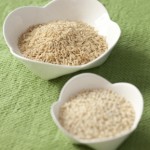In response to the hue and cry about childhood obesity, an Interagency Working Group was set up, under the direction of our Congress, between the FTC, the FDA, the CDC and the Department of Agriculture . Their tasking was to "develop a set of principles to guide (note that word) industry efforts to improve the nutritional profile of foods marketed directly to children ages 2-17" and also to support healthful food choices.
After I read a short Wall Street Journal article on this proposal this morning, I found the original government release from yesterday online and a commentary in The Atlantic online written today by Dr. Marion Nestle, a named chair professor in the Department of Nutrition, Food Studies and Public Health at NYU and a visiting professor at Cornell. I have her 2006 book, What To Eat and consider her a trusted and knowledgeable figure in the field.
Let's start with the Interagency proposal, titled "Food for Thought." It mentions the major sources of calories for youngsters are cookies and cakes, pizza and various sugary drinks. When and if they eat veggies, half of those are chips and fries. Their parents are becoming concerned about childhood obesity as well they should be; one in three kids is overweight and headed toward an increased risk of all the diseases associated with obesity, hypertension, asthma and diabetes among them. They won't, on average, live as long as their folks do.
So, given that issue and the fact that the food industry spends huge amounts to markets these unhealthy food choices to kids, what does this august group come up with?
A voluntary program that should (note the word choice) be followed by the year 2016. Strange I think that's five years from now.
The recommendations, now subject to public comment (read that as efforts to soften them by the food industry) appear reasonable on first glance. They include foods that "provide a meaningful contribution to a healthful diet" and note those food components that should (same word again) be limited (added sugars, sodium, saturated fats and trans fats).
Marion Nestle's comment notes a prior attempt that never saw the final "rules" being implemented, and voices concern that the principles are still voluntary with no agency set up to track compliance and that five years seems far too long to institute these kind of changes. She thought the 2010 proposals weren't strict enough and noted the sodium level mentioned in the 2011 version was actually slightly increased, presumably to allow inclusion of more junk foods. She does congratulate the FTC for its courage.
Well I'll be a little blunter. I'm not holding my breath that these changes will happen short of massive public protest.
Even though 17 major companies are making some changes by reformulating foods and decreasing their markets efforts to kids, I think those will be glacially slower than they should be if we're going to help and even save the upcoming generations.
So it's time for all of us to weigh in on this issue. Start a campaign, talk to friends, write a blog...do something.





